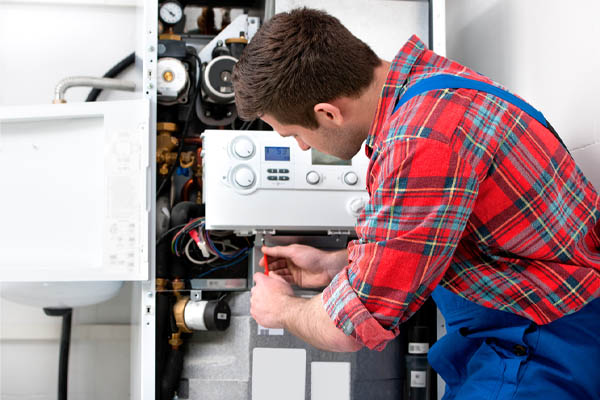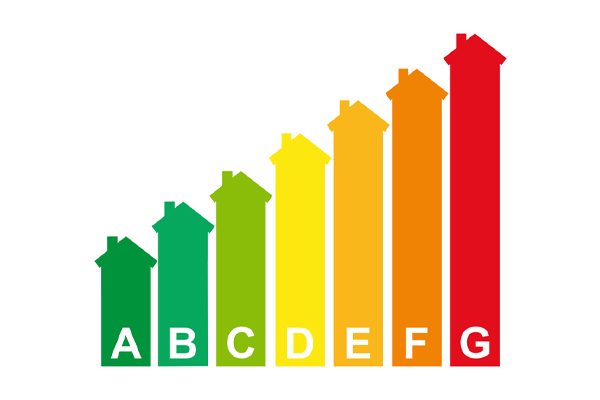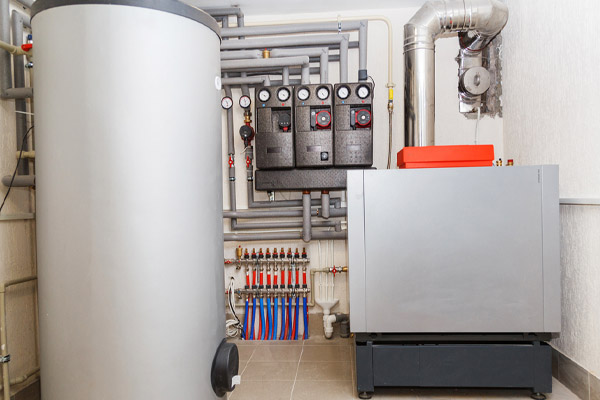
Every good thing eventually reaches its end. Even though your current boiler has offered many years of reliable service, this equipment doesn’t have an unlimited lifespan. At some time or another, its performance will invariably decline. Moreover, scheduling repairs will no longer be the most cost-effective decision. At one time or another, you’ll need to schedule an oil boiler installation. This is always an excellent time to find a system that has more advanced features. It is also an opportunity to find something that’s perfectly in-line with your needs. Keep reading to find out which features and capabilities to look for when choosing a new oil boiler for your home.
Things to Keep in Mind When Shopping for a New Oil Boiler
Purchasing a replacement oil boiler can be a complicated endeavor. It’s important to give yourself ample time to consider all of your options. Consider your home’s requirements. If you aren’t familiar with these, speak with a reputable HVAC company, like Point Bay Fuel, to get advice. You can get reliable answers. HVAC professionals will help you make sensible decisions at every turn. Following are several key things to consider along the way.
1. The Type of Oil Boiler

You can choose between a hot water boiler and a steam boiler for your home. Both work similarly, however, there are several differences to note. Steam boilers operate at high boiler temperatures and they don’t need as many accessories. However, hot water boilers are both safe and more efficient. Steam boilers are so powerful that they’re best suited to industrial environments and large-sized homes. Hot water boilers are sufficient for small and medium-sized homes. These systems can use either natural gas or heating oil as their fuel. Many New Jersey households prefer oil heating due to its high levels of accessibility and affordability.
2. The Size of a Heating Oil Boiler
One very common assumption is that larger boilers always work better than smaller ones do. In reality, every home has an ideal boiler size. If you install heating equipment that’s too large for your home, you’ll have to deal with a frustrating issue known as “short-cycling”. When this happens, the living environment will reach the desired temperature too quickly and the boiler will shut off. This rapid switching between off and on can wear the system out and cause it to break down early. In the meantime, you will pay more than necessary for your home heating costs. A lot of homeowners get the same size boilers that they had before, but it’s best to have HVAC installers take the time to perform accurate calculations for boiler size.
3. The Efficiency of the Oil Boiler in Your Home
 Homeowners should focus on far more than just the upfront price of a boiler. Heating systems use the most energy in nearly every home. As such, you should do all that lies in your power to lower your boiler’s operating costs. Getting a high-efficiency model will minimize your spending on heating fuel. Although you’ll pay a bit extra to get an efficient unit, doing so will save your cash over time. AFUE measurements determine how efficient heating systems are in converting fuel to heat. Look for a high AFUE rating to get the best results. Heaters that are well-rated for efficiency come with the Energy Star label.
Homeowners should focus on far more than just the upfront price of a boiler. Heating systems use the most energy in nearly every home. As such, you should do all that lies in your power to lower your boiler’s operating costs. Getting a high-efficiency model will minimize your spending on heating fuel. Although you’ll pay a bit extra to get an efficient unit, doing so will save your cash over time. AFUE measurements determine how efficient heating systems are in converting fuel to heat. Look for a high AFUE rating to get the best results. Heaters that are well-rated for efficiency come with the Energy Star label.
4. What Maintaining an Oil-Fired Boiler Entails
To perform their best and last longer, heating equipment has to be regularly cared for. Different boilers have their own unique requirements for maintenance. Find out what these needs are for each model before making your pick. Choose an option with maintenance needs that you can actually stay on top of. Just remember that you won’t be able to do all of your heater maintenance by yourself. Some tasks should only be handled by licensed HVAC experts. Set up yearly boiler maintenance to make sure that your boiler lasts as long as possible.
5. Boiler Venting Requirements

Ventilation removes the exhaust gases that boilers produce as a byproduct of burning fuel. Find out which venting method will work well with the layout of your home. Boilers that are vented by chimneys have a vertical stack that passively releases combustion gases. Fumes that are low in density naturally move upwards until they reach the vent opening. Conversely, boilers that are power-vented actually force combustion gases out with fans. With these fans, combustion gases can be vented through a sidewall without the need for a chimney. However, to use this vent type, you’ll need a large, open room with plenty of airflow. Finally, boilers that are direct vented can be installed in confined areas and they aren’t reliant upon indoor air.
6. The Climate in Your Area
Your local climate will largely determine how much stress your heating equipment is regularly subjected to. In some locations, it only gets cold enough to warrant turning the boiler on during winter. However, in other regions, some people use their boilers all year long. You should always choose a boiler that can handle the load.
7. The Brand Name of an Oil Boiler
All boiler manufacturers do their absolute best to innovate. Some companies have really stood out in this area when it comes to new boiler designs. For instance, some brands are top-rated for factors such as efficiency and overall durability. Others have high responsive warranty repair services. You can take the time to research different brands before shopping. You can ask friends, family members, and even co-workers for boiler recommendations based on their experiences. HVAC companies can provide helpful guidance based upon their years of industry experience.
Conclusion
Your circumstances, needs, and location will determine the best boiler for your home. You can simplify the selection process by getting help from a trusted HVAC company in your area. If you are currently using heating oil to power your heating system, then limit your replacement costs by looking for another oil-fired boiler. Look for a good match for capacity, venting, maintenance, efficiency, and brand.
Call Point Bay Fuel For All Of Your HVAC Requirements

Point Bay Fuel provides top-quality heating and cooling services in Ocean and Monmouth County, New Jersey. Our company has highly trained and the best professionally certified technicians for all your HVAC service needs, including boiler installations, air conditioner repairs, furnace maintenance, and more. All our techs are knowledgeable, skilled, and experienced in working on any HVAC system correctly.
Rest assured, we have the most competitive HVAC service prices in the area. Our maintenance services can enhance comfort and energy efficiency while reducing your energy bills. When you need to replace or repair your HVAC system, we can recommend the best solutions that fit your home and budget. All our work comes with a guarantee.
For all of your heating oil deliveries, you can count on us to provide you with superior service. Our heating oil deliveries are fast, reliable, and affordable, and we always keep your safety in mind. We offer various heating oil delivery plans and financing options. This way, you can customize your fuel deliveries to meet your needs.
Book a service appointment by calling Point Bay Fuel today. We offer in-home estimates.
Contact us now by calling (732) 349-5059 to speak to one of our home comfort specialists!
The post How To Choose The Right Oil Boiler For Your Home appeared first on Point Bay Fuel.
No comments:
Post a Comment